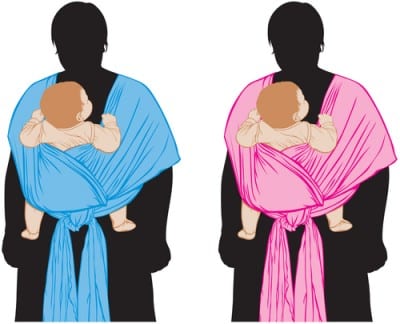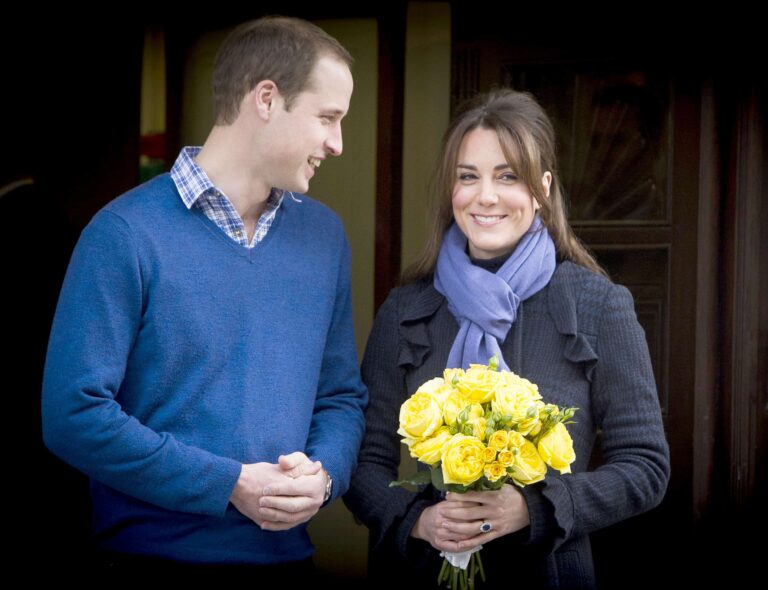Baby Blues: I Would Not Have Committed To Attachment Parenting If I Knew I Was At Risk For PPD
 Baby Blues is a column about raising my daughter in the windstorm of postpartum depression. Though discussing the dark spots of postpartum depression, I also share my successes.
Baby Blues is a column about raising my daughter in the windstorm of postpartum depression. Though discussing the dark spots of postpartum depression, I also share my successes.
In light of the new study that shows a link between postpartum depression and high levels of a hormone during pregnancy called pCRH, I find myself wishing I could have had this test when I was pregnant.
When I was pregnant I knew it was possible I might develop PPD since I had a history of clinical depression. But for me, I felt calm and content (most of the time) during my pregnancy — whether it was due to my low-stress job, my gorgeous pregnancy hair or my excellent support system of family and friends. All of these things led me to believe I finally had my depression under control, so I didn’t think much about PPD as a real possibility.
But if I could have taken this test, and a doctor or my midwife could have told me I was at a high risk for postpartum depression, I would have done some things differently.
I wouldn’t have committed myself to attachment parenting so wholeheartedly. I am very glad I breastfed, and sometimes I think nursing actually helps offset my depression symptoms — it relaxes me, forces me to slow down and appreciate moments, and in the early days I could literally feel the oxytocin release flood through my body when I settled down to nurse my daughter.
But my daughter was a vigorous eater, nursing every hour for the first several weeks and every two hours for the first year of her life. She would fall asleep on the boob and I would never want to wake her, so I often felt chained to the recliner or bed. I felt lazy, like I had lost my personhood, and I was worthless to the rest of the world, which is difficult for anyone — depressed or not.
Dr. Sears, the attachment parenting guru himself, has a chapter in his book on “mommy burnout.” He recognizes that attachment parenting can become too much for some mothers, especially those who are prone to depression. If I had some inkling of how truly difficult life would be, I would have taken that chapter to heart. I could have taken a less intense approach to AP by shelling out for an electric breast pump so that my husband could feed her and I could get a break every once and awhile. Even having 10 or 15 minutes to take a walk would have worked wonders for me.
But as for the other aspects of attachment parenting — co-sleeping, babywearing, never letting baby cry, rarely letting baby play or rest anywhere but in my arms — I might have just opted out of them altogether. My love-hate relationship with co-sleeping has been a major source of guilt and frustration for the duration of my daughter’s life. On one hand, it was a relief in the early weeks because sleeping with baby next to me meant I got more sleep. And I will always relish the joy of waking up to her little sleepy face.
But at 18 months old she’s still in our bed and I’m still nursing her to sleep, so I give up a huge chunk of my personal time at night to get her settled in. She usually wakes up two or three times throughout the evening, too, meaning I don’t really get a chance to spend time alone and “reset” before bedtime. I have no doubt that this contributes to my own sleep problems, and an interrupted sleep schedule makes my depression worse.
Aside from attachment parenting, I also would have taken our health insurance situation (lack thereof) much more seriously. Seeing a therapist helped me immensely when I was in my early 20s, and knowing this, I would have found a plan that would make this option a little more affordable than paying straight out of pocket.
I just wonder if I could have eased up on myself all-around if I’d had this testing early on. So much of my stress as a mother came from believing I could give all of myself to my daughter all the time — and furthermore, if I didn’t, she would fail to thrive. This sounds ridiculous, but I really, truly believed that being a perfect mother was an attainable goal, and if I wasn’t doing it, I wasn’t trying hard enough. So when I went from “nearly perfect” to having PPD, I didn’t take it as an opportunity to focus on my own health. I took it as another example of how I’d failed.
Even though this research is still incomplete, and we may not have PPD pre-testing for quite some time, I’m hopeful when I think of how this may help other women prepare for the throes of new motherhood. Maybe if more women can find out that they’re susceptible to this common condition, we could see a cultural shift in expectations for mothers, allowing us all to ease up on ourselves when we’re not doing everything perfectly.
(photo: agrino / Shutterstock)






